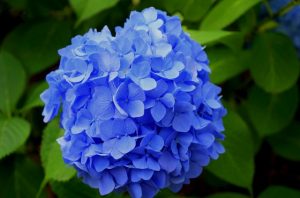
June in Fayetteville, North Carolina, marks the beginning of summer with its warm temperatures and abundant sunshine. It’s a critical time for gardeners to ensure their plants are well-prepared to withstand the heat and continue to flourish. Here are some essential June gardening tips to keep your garden thriving this month:
1. Watering Wisely
- Early Morning Watering: Water your plants early in the morning to reduce evaporation and allow plants to absorb moisture before the heat intensifies.
- Deep Watering: Water deeply but less frequently to encourage deep root growth. This helps plants become more drought-resistant.
- Mulching: Apply a 2-3 inch layer of mulch around plants to retain soil moisture, reduce weed growth, and moderate soil temperature.
2. Soil Care
- Soil Testing: If you haven’t done so already, test your soil’s pH and nutrient levels. Adjust as needed with the appropriate amendments to ensure your plants receive the nutrients they need.
- Composting: Add compost to your garden beds to improve soil structure, water retention, and fertility.
3. Pest Management
- Inspect Regularly: Check plants regularly for signs of pests such as aphids, beetles, and caterpillars. Early detection can prevent major infestations.
- Natural Remedies: Use organic or natural pest control methods, such as neem oil, insecticidal soap, or introducing beneficial insects like ladybugs.
4. Planting
- Heat-Tolerant Vegetables: June is ideal for planting heat-loving vegetables like tomatoes, peppers, cucumbers, squash, and eggplants. Ensure they receive plenty of sunlight and consistent watering.
- Succession Planting: For continuous harvests, practice succession planting by sowing seeds of quick-growing crops such as beans, radishes, and lettuce every few weeks.
- Flowering Annuals: Add color to your garden with summer annuals like zinnias, marigolds, and sunflowers. These not only beautify your garden but also attract pollinators.
5. Pruning and Deadheading
- Prune Spring Bloomers: Prune shrubs that have finished blooming in the spring to maintain their shape and encourage new growth.
- Deadhead Flowers: Regularly remove spent flowers from perennials and annuals to promote further blooming and keep plants looking tidy.
6. Lawn Care
- Mowing: Set your mower blade to a higher setting (about 3 inches) to encourage deep root growth and shade the soil, reducing water evaporation.
- Fertilizing: Apply a slow-release fertilizer to nourish your lawn throughout the summer. Avoid over-fertilizing, which can lead to excessive growth and increased water needs.
7. Herbs and Perennials
- Herb Harvesting: Regularly harvest herbs such as basil, mint, and oregano to encourage new growth. These herbs thrive in the summer heat and can be dried or frozen for later use.
- Dividing Perennials: If your perennials are overcrowded, divide them and replant in different areas of your garden. This helps rejuvenate the plants and fill in bare spots.
8. Garden Maintenance
- Weeding: Keep on top of weeds to prevent them from competing with your plants for nutrients and water. Mulching helps reduce weed growth significantly.
- Staking Plants: Support tall or top-heavy plants with stakes or cages to prevent them from collapsing under their own weight or in heavy rain.
By following these June gardening tips, you’ll be well on your way to maintaining a vibrant and healthy garden in Fayetteville, NC. Remember, the key to a thriving garden is consistent care and attention to the needs of your plants. Happy gardening!
